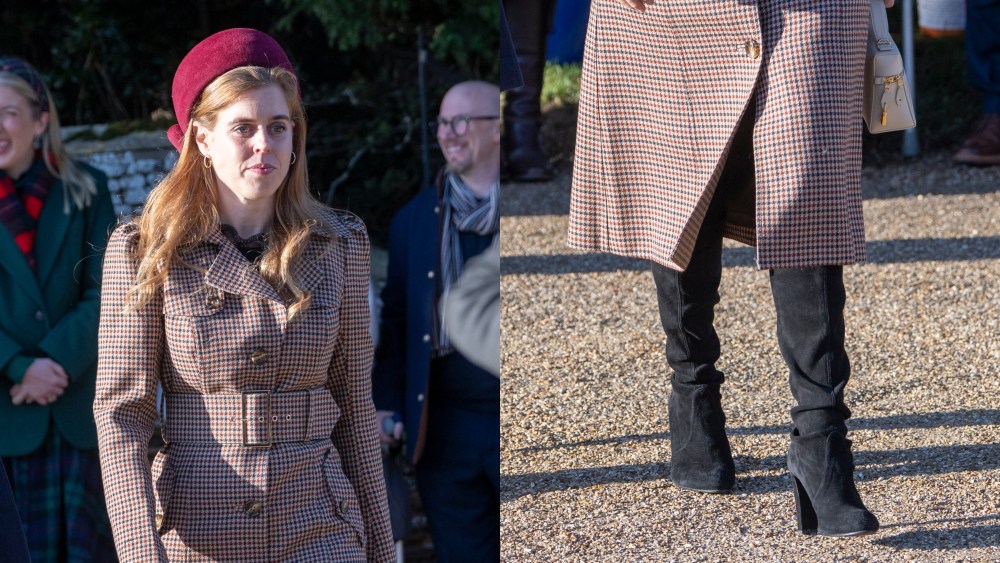Hot take: I think it’s f*cking gross when people apply skin-care products on airplanes. Hear me out.
There’s nothing more confusing to me than watching a passenger dutifully rub down their seat with an antibacterial wipe as soon as they sit down, only to watch them do a full skin-care routine mid-flight hours later – especially when they forgo wiping down their hands prior to application.
In-flight skin-care has become an activity that a lot of people participate in; there have even been products created specifically for use while traveling. I can’t count the number of TikTok videos I’ve seen where an influencer breaks down an in-flight beauty routine, which usually involves washing their face in the tiny germ-ridden bathroom, and then walking back to their seat to slather on products with their “freshly washed” airplane hands. Yes, I put freshly washed in quotes. Oh, you didn’t know? Airplane water is dirty as f*ck.
A 2019 Airline Water Study released by Diet Detective and Hunter College NYC Food Policy Center found that tap water on numerous U.S. airplanes was contaminated with differing levels of E. coli and coliform. They suggested that passengers avoid drinking any water on board that doesn’t come in a sealed bottle, and they even went as far to suggest that passengers avoid washing their hands in the bathroom. Instead, they recommend bringing hand sanitizer.
Not only are people washing their whole ass faces in airplane bathrooms prior to putting on skin-care products, but I know of people who brush their teeth in those sinks as well. As for me? It’s a hard no.
Even if you avoid the bathroom (and the water) entirely, you’re still not completely safe from all of the yucky stuff. You still have to contend with the high levels of germs on the airplane seatbelts, tray tables, and head rests. And don’t even get me started on the seat back pockets. Have you heard about the things people find back there? Used condoms, used tampons, and dirty baby diapers – just to name a few.
My opinion on this is firm: I will never do my skin-care routine on a plane unless I find myself in a “Yellowjackets” situation and the plane happens to be the only shelter I have on a deserted island thousands of miles from civilization.
I know there are differing opinions on this, with some experts claiming it’s OK in some circumstances. “Applying skin-care products on an airplane can be hygienic if done properly,” Charles Puza, MD, founder of MOMA Term tells PS. “Airplanes are environments with dry air and can have higher levels of bacteria due to the number of people in a confined space.”
Board-certified dermatologist Rachel Nazarian, MD, FAAD, agrees it can be beneficial, adding, “These flights can be quite damaging to skin, mostly due to the lack of humidity and the recirculated air. At 20 percent it’s nearly half of the humidity that skin operates at best.”
So, yeah, I guess you can apply products while you’re up in the air (not that I’m going to do it), but there are some key rules you absolutely need to follow. The first? Make sure you have clean hands. “Ensure your hands are thoroughly washed or sanitized before touching your face or applying any products,” Dr. Puza says. (Just based on the previous note above, I’d go with a sanitizer versus an in-flight potential E. coli wash.) Next, you should use products that are in sealed, single-use packets to minimize any contamination risk. And last, “limit touching your face after handling tray tables, seat handles, or other surfaces,” he says.
However, both Dr. Nazarian and Dr. Puza agree that the best option is to complete your skin-care routine prior to getting onto your flight. (Yes, people, say it with me: p-r-i-o-r to getting on your flight.) Once you’re seated and buckled in, coordinating proper (and hygienic) skin-care application can be difficult. “Prevention is key,” Dr. Nazarian says.
Instead of waiting until you’re on the plane, the day you fly, or the night before if you have an early flight time, Dr. Nazarian suggests hydrating the skin internally by increasing your water intake. “Give the body a chance to recover from any baseline dehydration and fully hydrate skin and mucosal membranes such as lips and eyes.” She notes that it’s best to avoid dehydrating drinks and foods, like alcohol or sugary items, which she says can cause increased inflammation of skin throughout the flight.
Externally, Dr. Nazarian suggests hydrating the skin from the outside and preventing environmental dehydration. Put the pause on any harsh, drying, or exfoliating products. Then, start out by washing your face with a gentle cleanser, like the CeraVe Hydrating Facial Cleanser ($16). “Next should be a cocktail of potent antioxidants to neutralize all the free radical damage you’re going to be exposing your skin to,” she says. She suggests looking for products that include vitamin C, vitamin E, niacinamide, or even naturally derived green tea extract.
Next, opt for hyaluronic acid gels and creams to help draw in moisture. “A barrier to prevent water loss from skin, such as Aquaphor, should also be applied before boarding your flight,” Dr. Nazarian says. “Lastly, but certainly also as important, use a broad spectrum SPF before flying if you’re traveling during the day. Ultraviolet radiation rays are much more intense at high altitudes.”
Renee Rodriguez is a staff writer and social producer for PS. She writes across all verticals, but her main areas of expertise focus on fashion and beauty content with an emphasis on reviews and editor experiments. She also produces social content for the PS TikTok and Instagram accounts.




